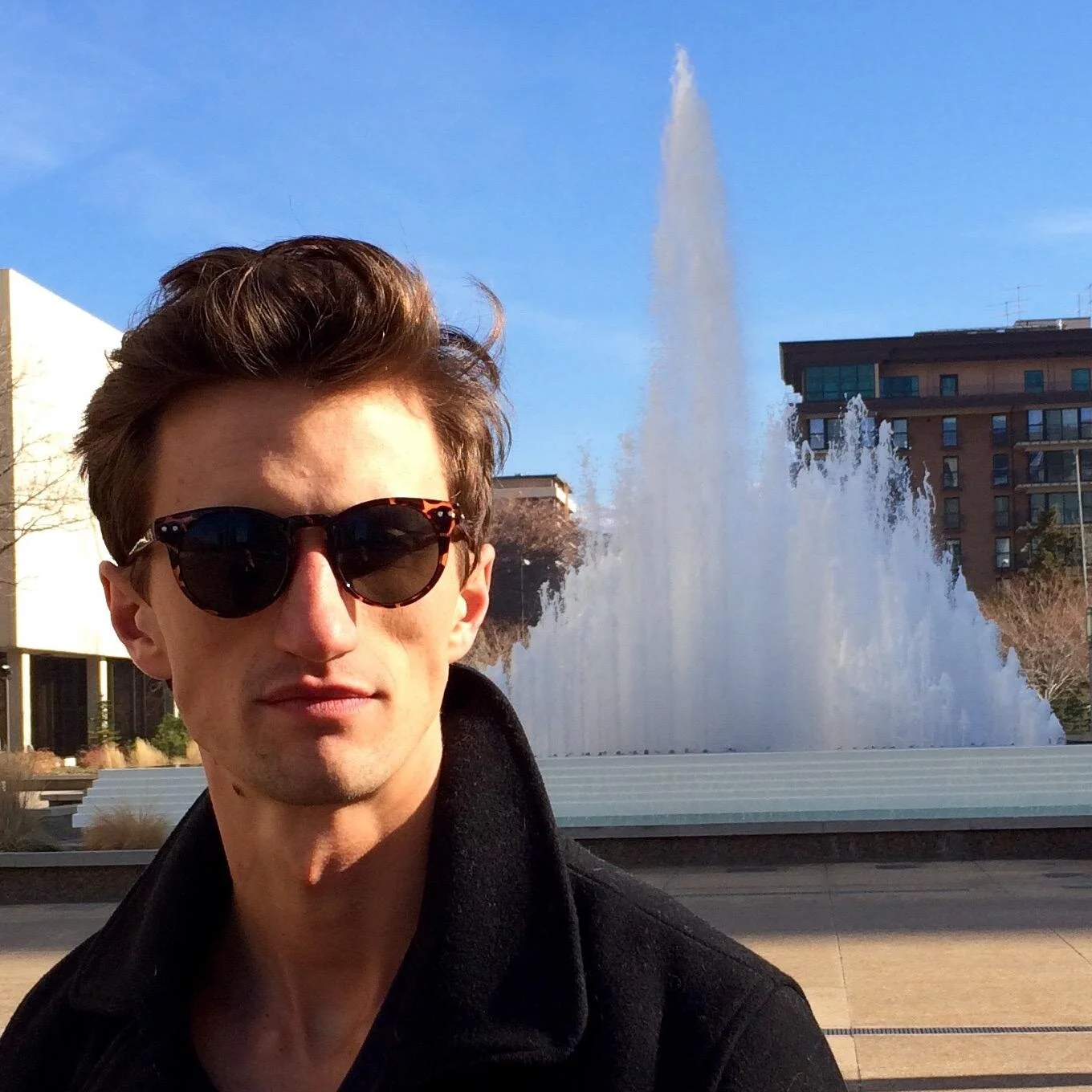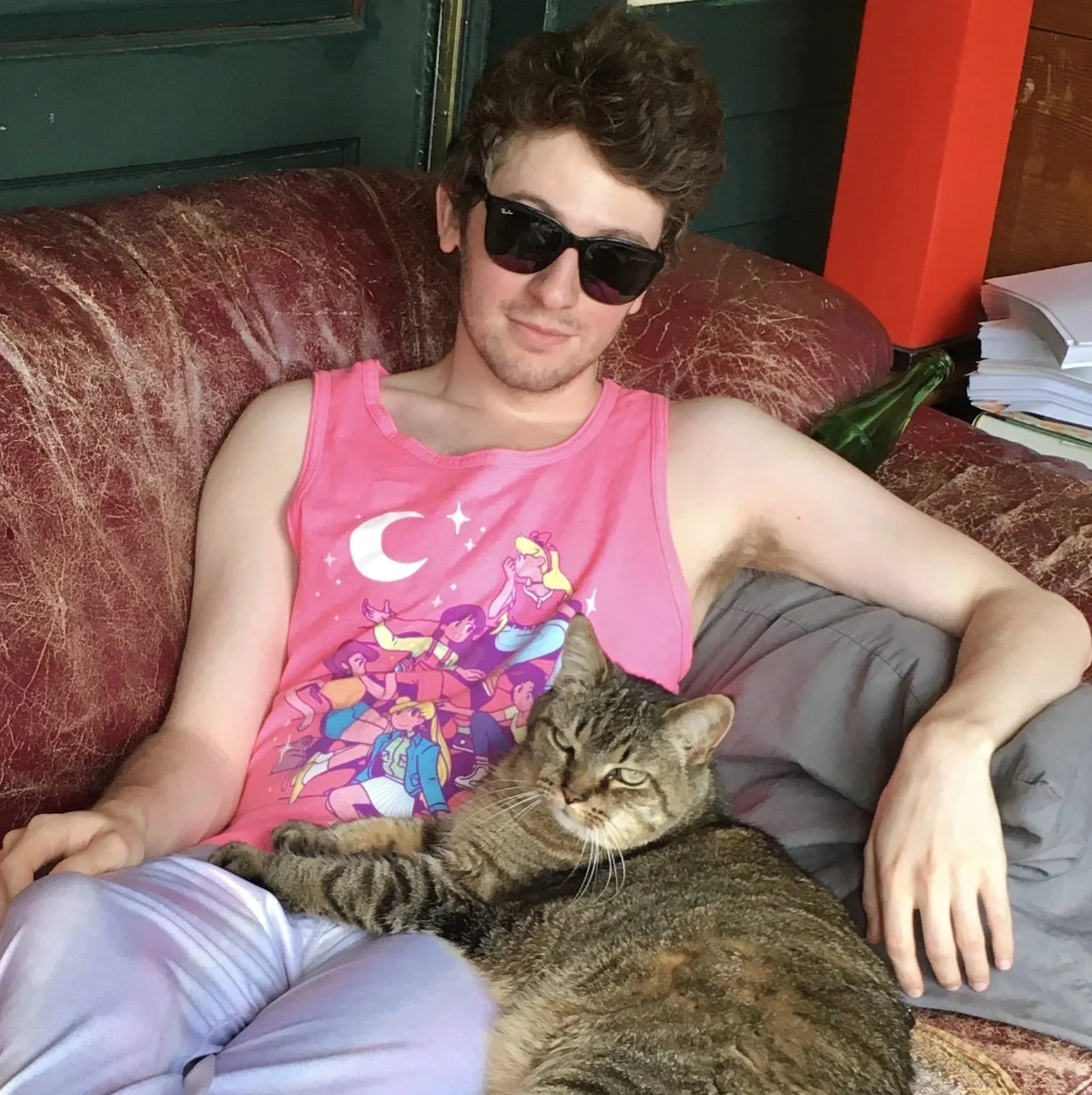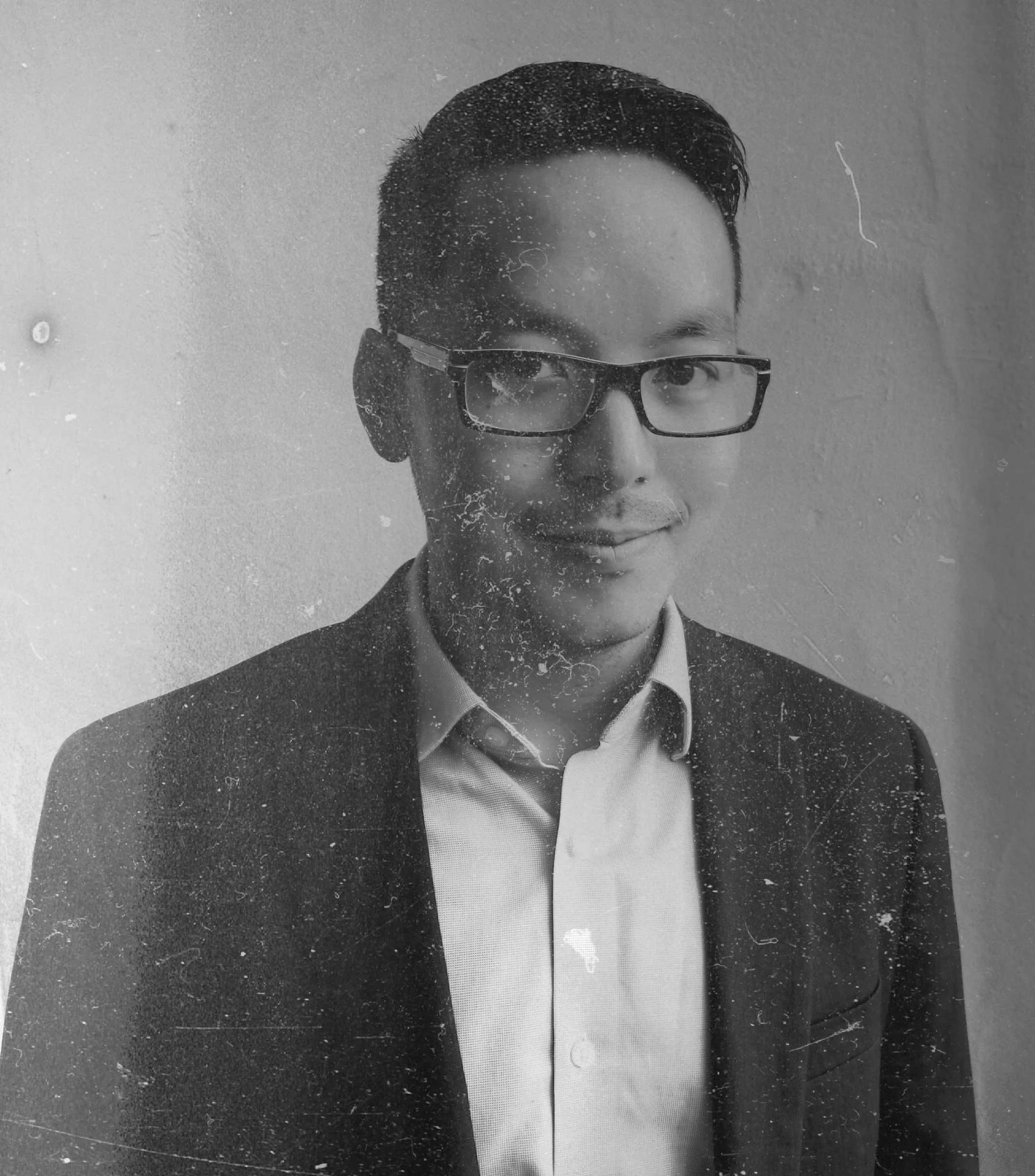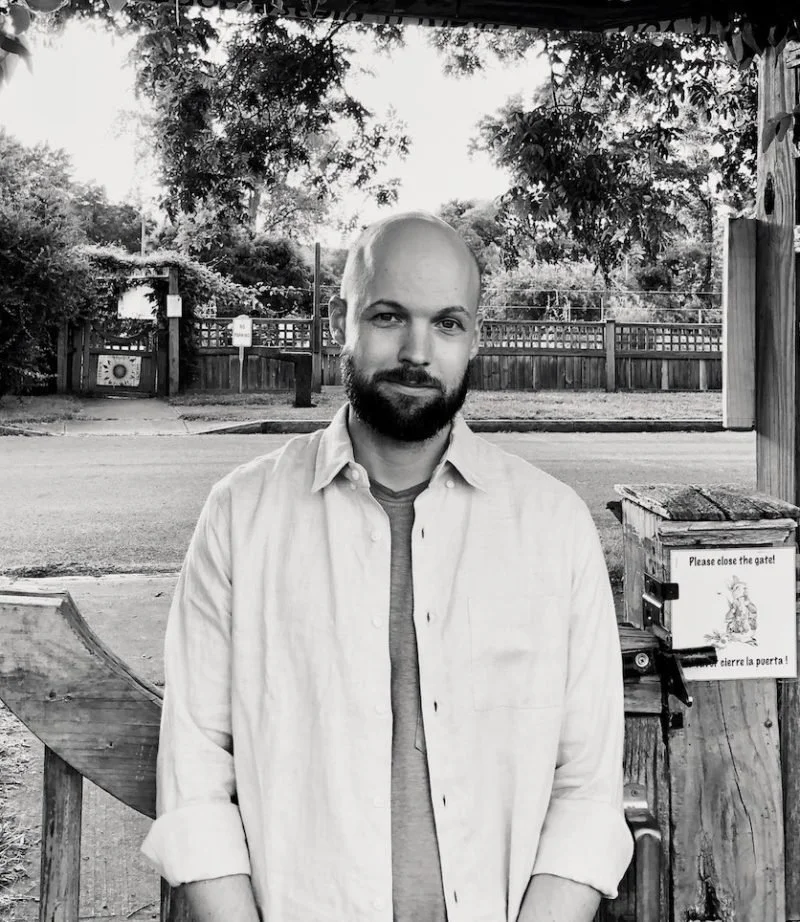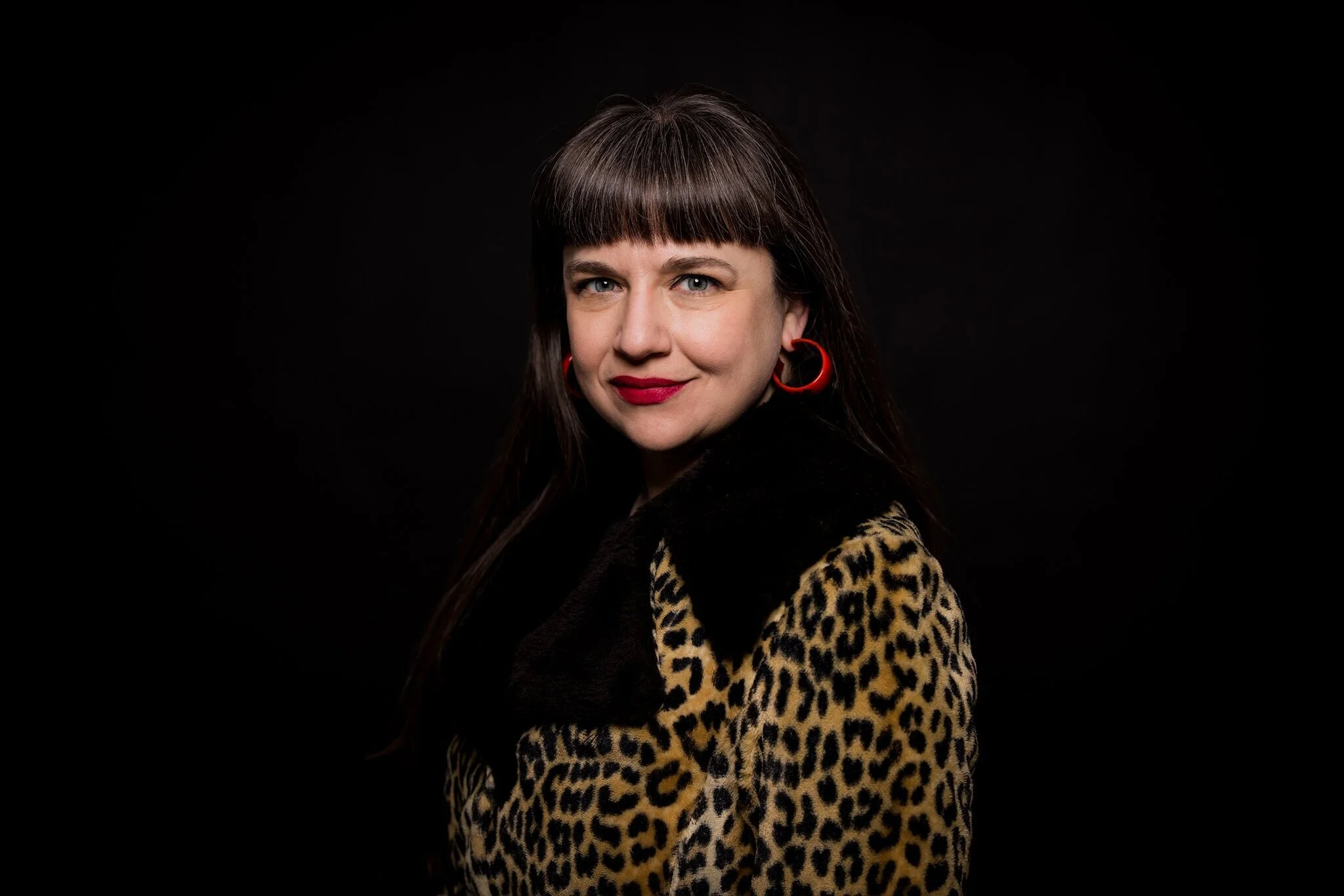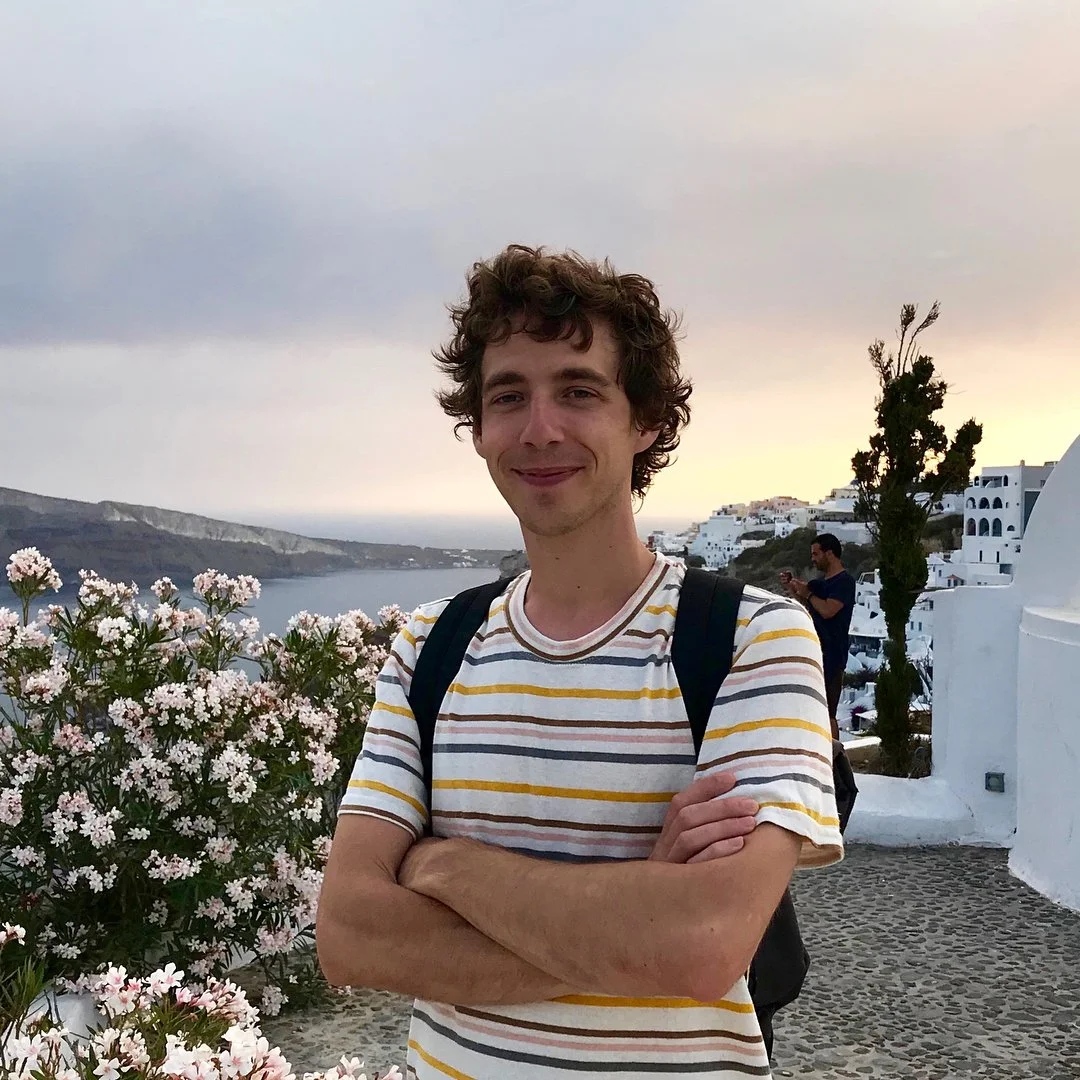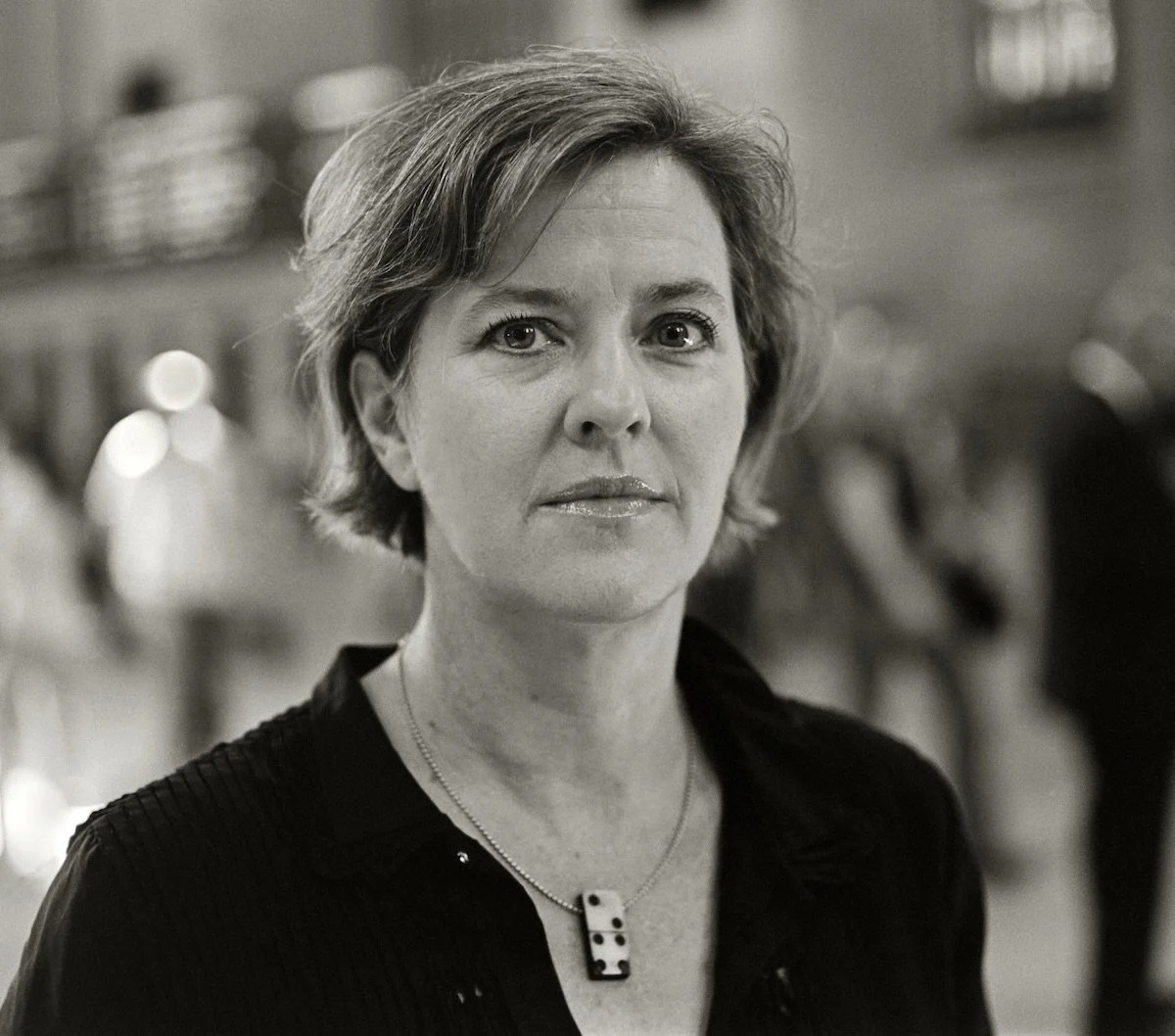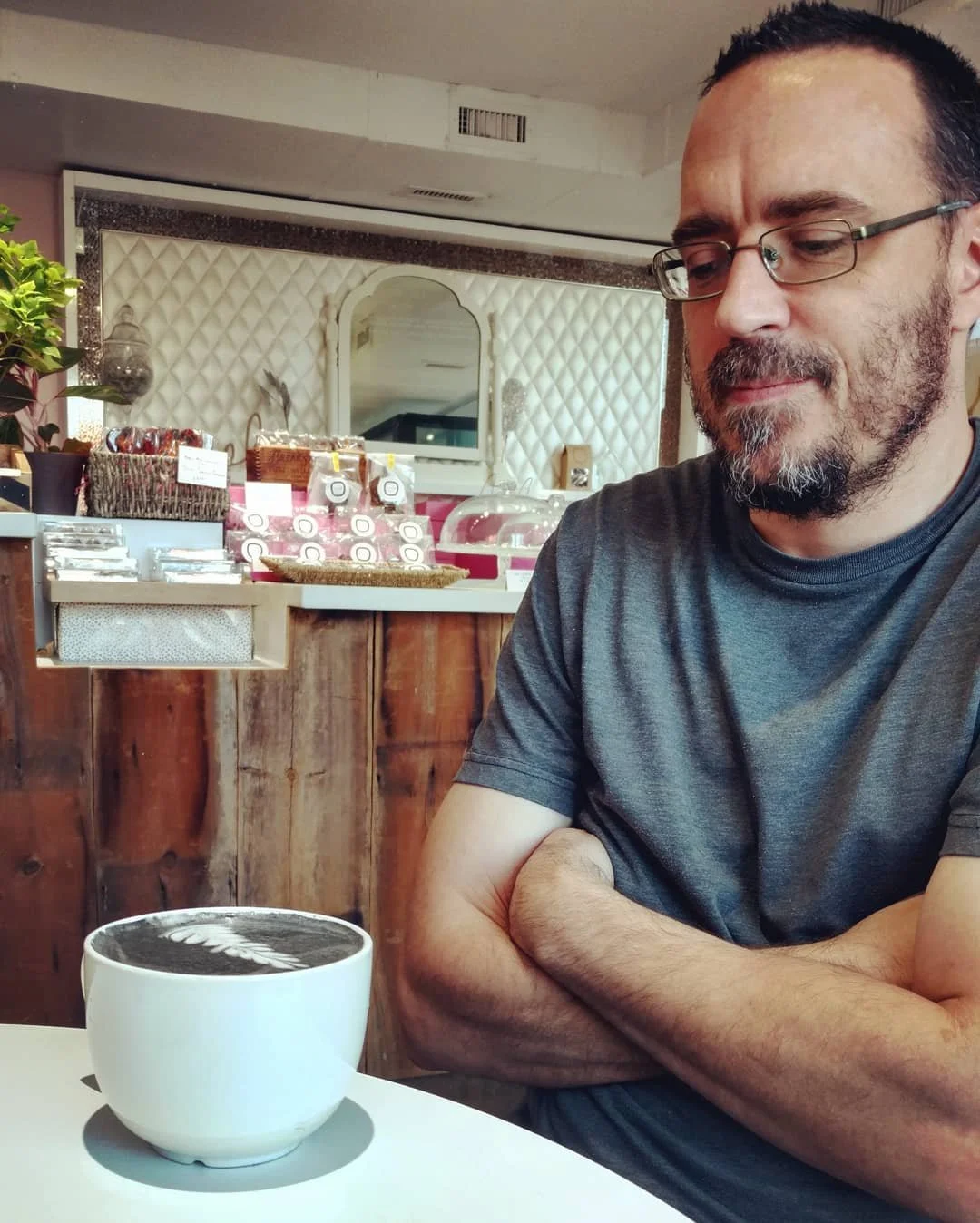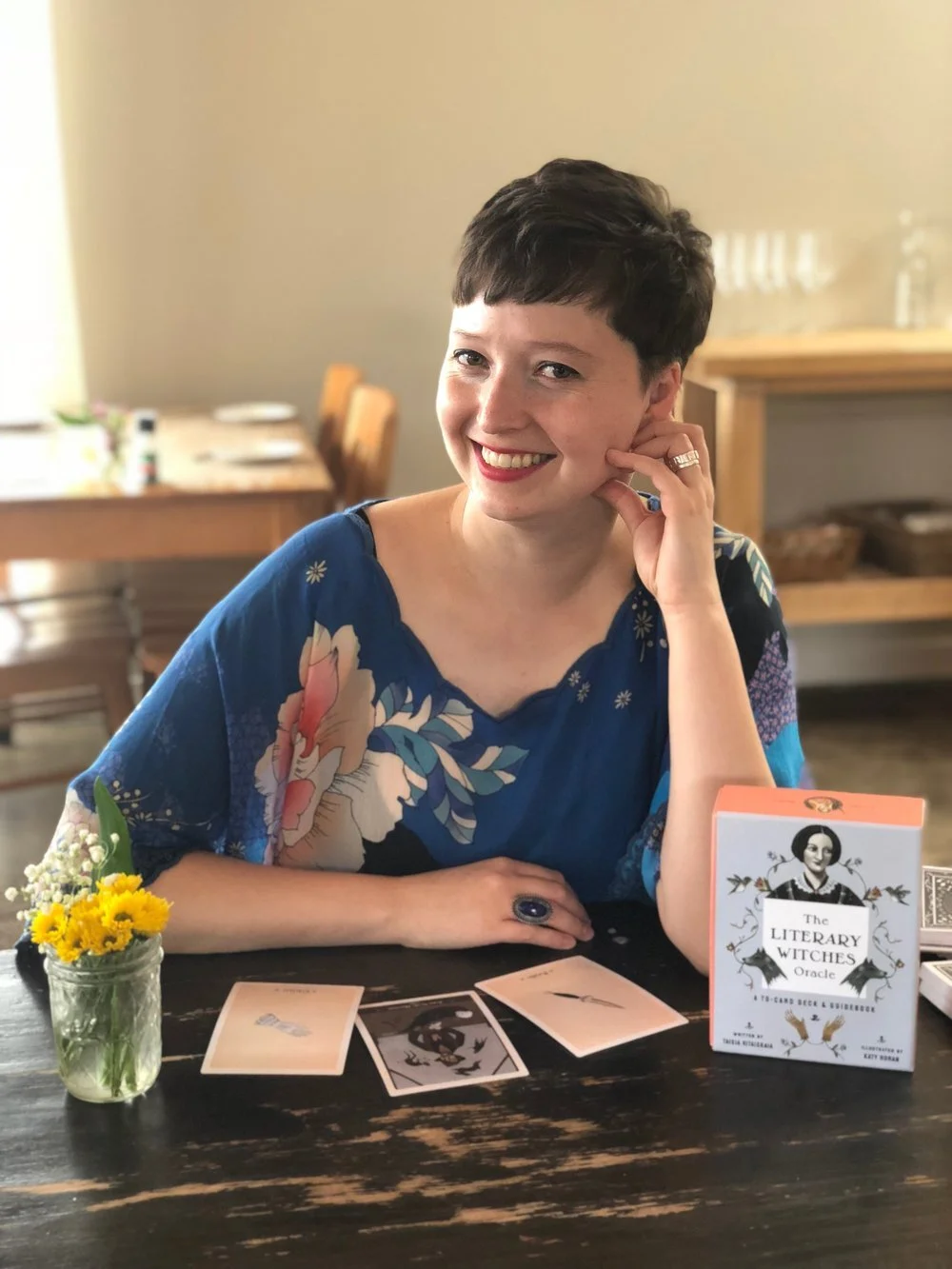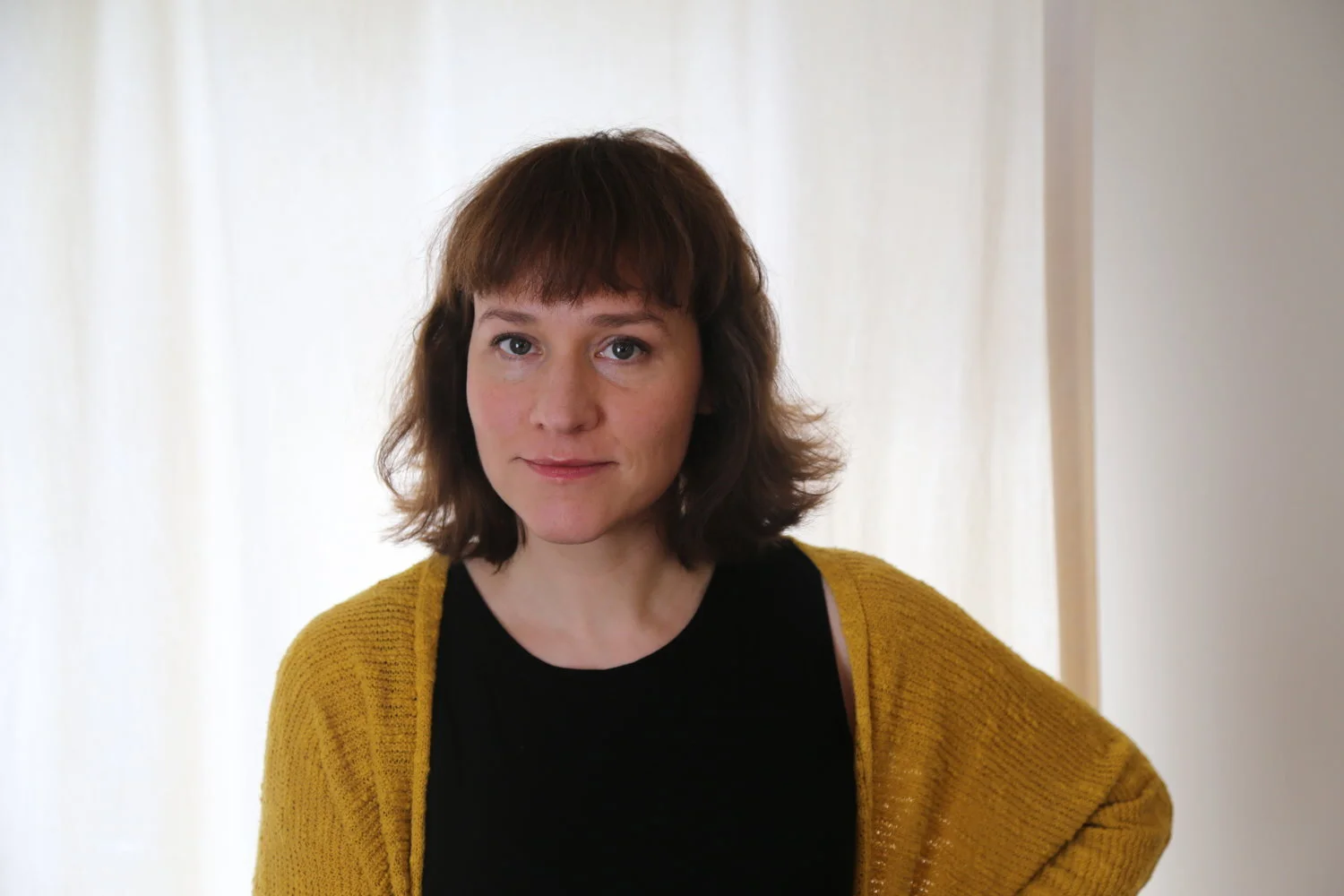The work of poet and translator (and soon-to-be novelist) C. Dylan Bassett took me by storm in 2019. His 2015 collection of scenes, or one-act plays, released through Plays Inverse, titled The Invention of Monsters, was my jaw-dropping introduction. It’s a tiny book also available as I deck of playing cards I keep in my backpack. One of my favorites. A surreal collection of prose poems or microfictions or abstract vignettes. You can find a few throughout this interview. That same year, he released his “debut” collection The Unpainted Shore. Following those two collections, Bassett, in collaboration with his partner Emma Winsor Wood, focused on translation, in particular an anthology of Daniil Kharms work titled A Failed Performance: Short Plays & Scenes (2018).
While I didn’t discover Bassett’s work until years later, perhaps it’s fitting that this interview took nearly two years to conduct. I spoke with Bassett via email starting in the summer of 2019. Oftentimes many months went by but the conversation was always continuing. Much like how I continue to return to his scenes, pulling from these playing cards to see what happens, these tiny prompts like lightbulbs for my freewrites. Lines I’ll continue to be in conversation with, years after this interview goes live. Read Bassett’s insights and updates below, along with a writing prompt titled “The Box”.
from The Invention of Monsters
Let's begin with an icebreaker. If you could peruse the journals/drafts of any playwright/poet (living or dead), who would it be and why?
I do believe there is a correct answer to this question. Or several correct answers. I mean, there are definitely incorrect answers. What you’re asking is not a question of personal taste or influence, it seems to me. It’s an ethical question.
First, only dead authors deserve devotion and awe.
Second, if, by some magic, I could access the lost/destroyed/nonexistent journals of a dead writer, I should feel obligated to choose a writer about whose life we (the world) know very little. A writer whose work we can access, but whose biography—for one reason or another—remains unknown to us.
For this reason, I would feel obligated to answer, depending on the day: Homer, Sappho, Chaucer, Shakespeare, Dickinson, Poe, etc. (Pynchon is still alive, of course.)
So, today, I’m going with Shakespeare. Boring as it sounds, Shakespeare’s the reason I started writing. I read Lear when I was nine years old. I didn’t understand a single word, but, even then, I had the sense—the intuition, the inspiration—that what I was reading was meaningful, powerful, life-changing. That it contained some unspeakable reality. Something beautiful. Something true. I felt Lear was teaching me how to understand myself—how to live and die. Even at nine, yes.
We started communicating in the summer of 2019 and a great deal has happened since. In our correspondences, you mentioned having a child, the California fires, and getting Covid. Can you speak about this rollercoaster of a time you've had?
The worst was the fire, I think. We almost lost our house, and that anxiety was taxing. Overall, this is a hard question to answer because, yes, it was a bad year for us, all of us. But when I look back, I wonder: Was it so bad? No, it wasn’t. Or maybe it seems like it wasn’t because others had it worse than I did. It seemed that way on the news. (I don’t watch the news.) It’s hard to complain, then—you know? I had my teaching, at least. And I had my books.
Truth is, 2020 was one of the most intense years of my life. Intense and therefore good. Intensity is good, no?
I wrote a novel. I reconnected with old friends. I ran and rode my bike and surfed. I read books. Mostly old books. Very old. I felt like I was taking communion with the dead. I started to appreciate everything. Music, for example. The sound of the human voice. My bicycle, that heavenly machine. The world felt bright. Literally bright. Everything was outlined in clear, dark lines.
I could be wrong. I remember my own life poorly. My memory rests in books written by other people. That’s why I read.
from The Unpainted Shore
When I first reached out in 2019, I had just finished reading and was really drawn to your scenes in the collection The Invention of Monsters. I've had the playing cards in my backpack ever since. For this collection, can you talk a bit about your approach? Were many 'scenes' left out of the final collection?
Thank you for saying that!
I never meant to write that book, not really. What happened was this. The Black Warrior Review wrote to me and asked for poems about “performance.” No, I didn’t have any such poems. Not yet. But I didn’t tell them that. Obviously, I wanted to be in the Black Warrior Review. So I set out to write the poems. I saw it as an opportunity to think. I thought for a long time.
I started writing little paragraphs (scenes, prose poems, micro-fictions, monologues, stage directions) made from the stuff of performance but without the performer. The material of performing, but no actors. Figures, props, voices, body parts. But no coherent, consistent actor. No ongoing “I.” No stage. No audience.
I didn’t set out to write something dark, bleak, surreal, or whatever else people called it. I hadn’t written anything like it before and I haven’t written anything like it since. I simply started with a question: What is the content of performance (social, cultural, private) stripped away from the act of performing? What is the material, the pure matter of performance without the performance itself?
What followed scared me quite a lot. I freaked myself out writing that book. Now I look back and think: That’s someone else. I didn’t write that. I guess I found out for myself what the ancient poets already told us: the poet’s voice is not her own.
And yes, I cut out as many scenes as I wrote.
Was the connection with theater always part of the vision? Along with these scenes, in 2018, you released A Failed Performance: Short Plays & Scenes by Daniil Kharms. Can you discuss a bit about your fascination/history with theater and the stage?
When I was a child I wanted to be a playwright but, as I got older, I found it impossible to do. There were certain things I couldn’t accomplish. I couldn’t, for example, move actors around the stage. So I gave up, and when I wrote Invention, I wasn’t thinking about the theater in the strict sense, with all the usual elements—stage, actors, stage props, sets, audience, etc.. Instead, I was thinking about performance vis-a-vis the narrative text.
More than any other work, I was thinking about Virginia Woolf’s “playpoem,” The Waves—how every character in the book is trying to create meaning by performing the story they tell themselves about themselves. That’s it. I was thinking about how they tell themselves a story about themselves to explain themselves to themselves, and how they subsequently perform or fail to perform that story in their daily interactions.
It doesn’t have much to do with the theater at all.
Or maybe it does.
from A Failed Performance
In your interview with The Rumpus, you said, 'We should acknowledge that Kharms himself probably wouldn’t have called many of these works “plays.” That being said, it is undoubtedly true that Kharms was interested in dramatic or theatrical writing. His writings showcase elements of the dramatic in their most elemental forms as they communicate, interact, reverberate, echo, and transform into each other. His plays don’t aim to reflect human relations so much as impede them.” Do you think this philosophy is pertinent in your own work?
I never read my old interviews because, by the time I read them, I’ve usually changed my mind about whatever it was I said. So, let me rephrase the sentence this way: His plays don’t aim to reflect experience so much as reduce it.
Kharms is not a writer of creation, but of decreation (Wallace Steven’s word). “Decreation” is a mode of stripping away. Of laying bare. Of exposing. Of withdrawing into crude origination. Kharms is a great writer of reduction—of reducing the human experience, as I said, to its most constitutive figuration. It is only from the point of elementally that one begins to feel liberated from inherited thought and (pre)scripted perceptions. Reduction is an approximation of ineffability and silence. It’s what Beckett calls “literature of the unword.”
When I wrote Invention, I wanted to do this, too. I wanted to strip away (mostly stereotypically masculine) experiences and performances to basic images, objects, icons, symbols, details, phrases, etc. I wanted to write in a way that was aphoristic but not axiomatic, subliminal but not psychological, descriptive but not expressive, minimal but not simplistic, ambiguous but not unrecognizable, disembodied but not dysphoric.
Life can be a bit upside down and chaotic at the moment, but can I ask what you're currently working on?
Last year, I wrote my first novel. (Excerpts forthcoming.) Recently, I started a second one. Also, I have a finished play—more post-dramatic theater, like Invention—that is sitting on my desktop, waiting for its time to come. I’m also working on a dissertation about Modernist Autofiction, lots of great writers there. H.D., Stein, Barnes, etc.
Because of the blurbs from The Invention of Monsters, I found out about author Eric Baus, who I interviewed on the site at the end of 2019. The image-driven prose blocks in both of your works are so sharp and vivid. Who are some other writers that you feel are perhaps part of your poetic family tree?
Family tree, yes! I do love that literary genealogies form not according to bloodlines, superficial resemblance, geography, contemporality, aesthetic association, or even influence. Instead, these genealogies are bound together by a shared vision. So we can say that, for example, Baus is related to Charles Baudelaire. I can’t answer this question about myself without sounding pretentious, but here goes: Gertrude Stein, Henri Michaux, Nikolay Zabolotsky, Daniil Kharms, Nikolai Gogol, Sam Beckett, Aimé Césaire, Alain Robbe-Grillet, Francis Ponge, Russell Edson, and living writers such as Harryette Mullen, Cornelius Eady, Rosmarie Waldrop. I could go on. I don't claim to write like any of these people. But I try to see as they have taught me to see.
from DIAGRAM
I must say that I spent some time online trying to track down an email for you, and while searching, I came across your page on ratemyprofessors. You have consistent high marks, but many mention how you are a very difficult professor. Do you approach academia with a strict red pen? Do you have a book or focus that you particularly enjoy teaching?
Not at all! If anything, I'm far too accommodating and approachable! In all seriousness, I will say this: My creative writing classes are perhaps unique in their rigor. (I say perhaps.) I give quizzes and exams. I ask my students to write critical essays and situate themselves into ongoing literary lineages. I find that many creative writing majors lack a basic sense of literary history. In some cases, I find students even fear histories of literature. They have been taught that history is a scary place. A place from which to run away. A place of bad ideas and nasty people. I find this willfully myopic, and to combat what I consider to be rampant presentism, my classes double as courses in creative writing and literary history. It’s ambitious, I know. But it works. Or, so far, it has been working.
I recently taught a course on novel writing. I asked my students—in addition to doing “creative writing”—to study histories and theories of the novel. I had them study the history of narrative forms from Aristotle to the Program Era. It was a lot of work. A lot of reading. It was worth it. Of course, it was inevitably a crude lesson in history. But the point was to begin to become lifelong students of world literature.
My favorite subject to teach is modernist art and literature. I don't often teach the same book twice, but last year, my three favorite texts were: Jazz (Morrison), The Waves (Woolf), Molloy (Beckett).
Along with The Invention of Monsters being released in April of 2015, you also released The Unpainted Shore, a collection of poems, in January of 2015. With the two books only four months apart, do you see them being in conversation with one another? Does one feel more like your 'debut'?
I still think of my debut as yet-forthcoming. I’ve been silent for years, but not for long.
What albums / movies / books have been keeping you company during the pandemic?
Books: The Brothers Karamazov, The Magic Mountain, Don Quixote, Petersburg, The Nocilla Trilogy, 2666, Giovanni's Room, Housekeeping, and NW.
Albums: Rock Bottom by Robert Wyatt; Chiaroscuro by Arve Henriksen; SIGN by Autechre; The Ape of Naples by Coil; Wagner e Venezia (Live) by Uri Caine Ensemble. I also listen to lots of Eastern Orthodox hymns and chants.
I don’t watch films anymore, not really. Maybe you can recommend some to me!
If you can, provide a photo of your workspace. What are some essentials while you create?
The devil writes at night. Daylight is my only prerequisite.
For this ongoing author interview series, I'm asking for everyone to present a writing prompt. It can be as abstract or as concrete as you choose.
I gave this prompt to my playwriting class yesterday:
Scenario: Two people are alone in a room. They find a box.
Prompt: Write a dialogue in which the contents of the box dramatically change the relationship between your characters. The characters must not: a) directly disclose their relationship, or b) directly name the contents of the box.
In closing, do you have any advice for writers trying to grow and/or working on the first manuscript? Or rather, what's something you would have liked to have known when you first started taking your writing seriously?
I don’t feel entitled to give advice to strangers. But I often tell my students:
1) Publication is overrated.
2) Read old books.
3) Cynicism is boring.
Any final thoughts / words of wisdom / shout-outs? Thank you!
Shout-outs: To my Modernist reading group: Arel, Luan, Caleb, Alena, Mieka, Jackie, Jack, Khushal, Sam, Bella. And to my best friend, Emma.
Final thought: I suggested it already. The best books teach you how to die.
